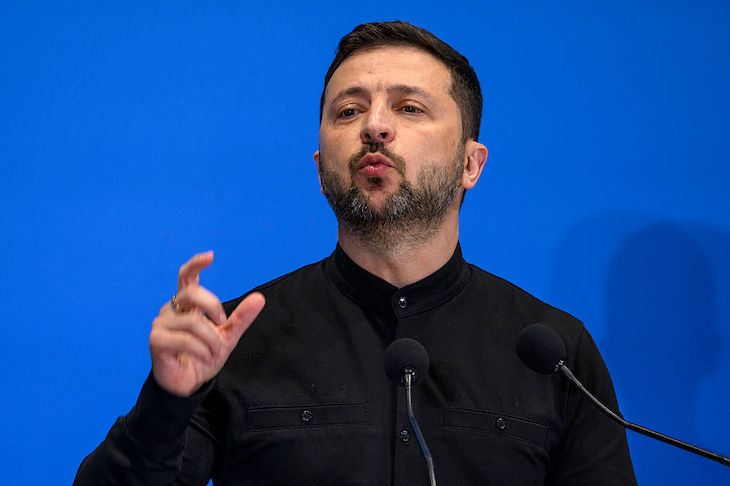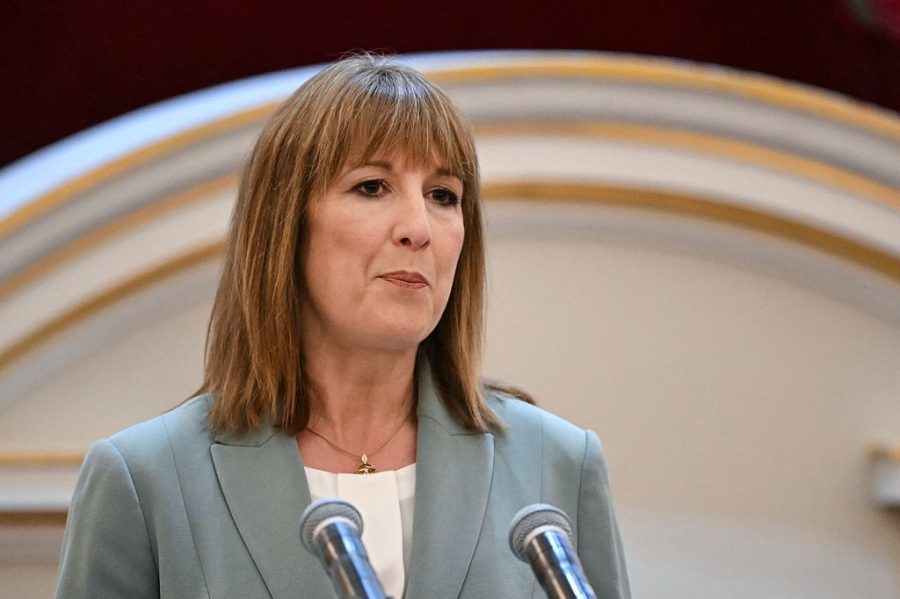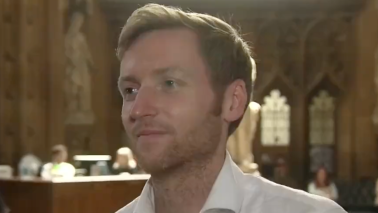Cries of ‘Shame!’ rang out in the Rada, Ukraine’s parliament, today as lawmakers from Volodymyr Zelensky’s Servant of the People Party, backed by most opposition parties, voted to bring key independent anti-corruption agencies under government control. The new law, which was backed by 263 lawmakers with just 26 opposing or abstaining, has sparked widespread condemnation from many politicians and civil society activists who had previously been loyal champions of Zelensky’s. The dismemberment of the National Anti-corruption Bureau (NABU) and the Special Anti-corruption Prosecutor’s Office (SAPO) has also caused deep disquiet among Ukraine’s leading international backers.
Zelensky’s government seems to have seriously miscalculated the mood of ordinary Ukrainian people.
‘Seriously concerned over today’s vote in the Rada,’ tweeted European Commissioner for Enlargement Marta Kos. ‘The dismantling of key safeguards protecting NABU’s independence is a serious step back. Independent bodies like NABU and SAPO, are essential for Ukraine’s EU path. Rule of law remains in the very centre of EU accession negotiations.’
Toomas Hendrik Ilves, president of Estonia from 2006-12, described the move as ‘a complete disaster’ that will ‘fuel all those in Europe who think helping Ukraine is pointless, not to mention the whole Russian narrative of Ukrainians just stealing the West’s assistance for private enrichment, a narrative we have fought for years.’
The Rada vote came days after Ukraine’s security service carried out 70 simultaneous raids on senior investigators from the NABU and SAPO agencies, reportedly without court warrants. They also searched the home of Vitaliy Shabunin, head of the Anti-corruption Action Centre (AntAC) independent NGO, as well as those of his family and friends.
‘Taking advantage of the war, Volodymyr Zelensky is taking the first but confident steps towards corrupt authoritarianism,’ Shabunin wrote on Telegram. Daria Kaleniuk, executive director of AntAC and once a leading defender of Zelensky’s, called accusations of fraud and misuse of state resources ‘absurd’ and described the case as a ‘vendetta for what…our organisation is doing and will keep doing about corruption and wrongdoing of authorities.’
A government spokesperson explained the raids and arrests as a campaign to weed out Russian agents, who the government claims are using corruption charges to undermine Ukraine’s war effort. Indeed, several senior Zelensky allies have fallen because of both civil society and NABU-driven anticorruption probes, though there is no evidence that these charges have any links to Moscow-funded troublemakers.
Defence minister Oleksii Reznikov resigned in 2023 after evidence of massive overcharging by army suppliers was published by the Nashi Groshy watchdog website; and last month, deputy prime minister Oleksii Chernyshov has also faced corruption charges. NABU and SAPO were working on 268 cases of corruption against Zelensky allies when they were taken over, says Kyrylo Shevchenko, former head of Ukraine’s Central Bank. ‘The next to go will be anti-corruption activists and independent journalists,’ says Shevchenko. ‘Zelensky is copying Putin.’
What concerns disillusioned former Zelensky allies and his opponents alike is that the takedown of NABU and SAPO are part of a long pattern of rollback of anti-corruption checks and balances by Zelensky’s presidential administration. The agencies were established at the behest of the European Union, which required them to be independent from the government, with leadership chosen through transparent, fair competitions, not political appointments. But earlier this year, Ukraine’s presidential administration blocked the appointment of a new independent head of the Bureau of Economic Security or BEB – another powerful law enforcement agency – insisting on a regime loyalist instead.
The law will make all the formerly independent economic crime institutions of Ukraine subordinate to the government-appointed prosecutor general Ruslan Kravchenko – who himself failed to qualify to be a regular prosecutor due to previous corruption allegations, but was promoted by Zelensky anyway.
‘By liquidating NABU, Zelensky is liquidating the last investigative body that could investigate his corruption,’ wrote Anatoly Shariy, one of Ukraine’s most popular YouTubers and head of a pro-Russian Eurosceptic party. ‘He will receive billions from the West. And steal, steal, steal.’
Zelensky’s government seems to have seriously miscalculated the mood of ordinary Ukrainian people. ‘This isn’t what our people have been fighting and dying for,’ wrote Olga Rudenko, editor-in-chief of the Kyiv Independent. ‘It’s devastatingly unfair to them.’ Wall Street Journal chief foreign correspondent Yaroslav Trofimov, himself a native of Kyiv, reports that ‘it’s no exaggeration that Ukrainian public opinion is in an absolute firestorm.’ For the first time since the Russian invasion in February 2022, prominent public figures have called for demonstrations against the government.
Perhaps more seriously, Zelensky seems to have badly misread the room in terms of the impact on his backers in the West. International anti-corruption bodies, Ukrainian civil society groups, the independent Ukrainian press and Western diplomats have all been warning Zelensky that passing this law could jeopardise Ukraine’s EU accession process, cancel its visa-free regime, and even trigger EU sanctions against Ukraine. But he went ahead and did it anyway.
In the wake of the Rada vote, Ukraine’s Anti-Corruption Action Centre published a mock up of a Time Magazine cover featuring Zelensky – but with half his face covered by that of Viktor Yanukovych, his corrupt predecessor. Yanukovych’s wholesale plundering of the state was one of the main triggers of the 2014 Maidan revolution. Just a year ago, any equivalence between Zelensky and Yanukovych would have seemed absurd. Today, many of those making exactly that grim comparison were once Zelensky’s most passionate supporters.








Comments